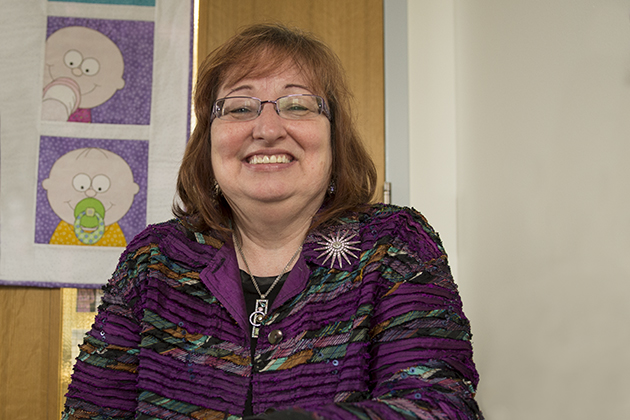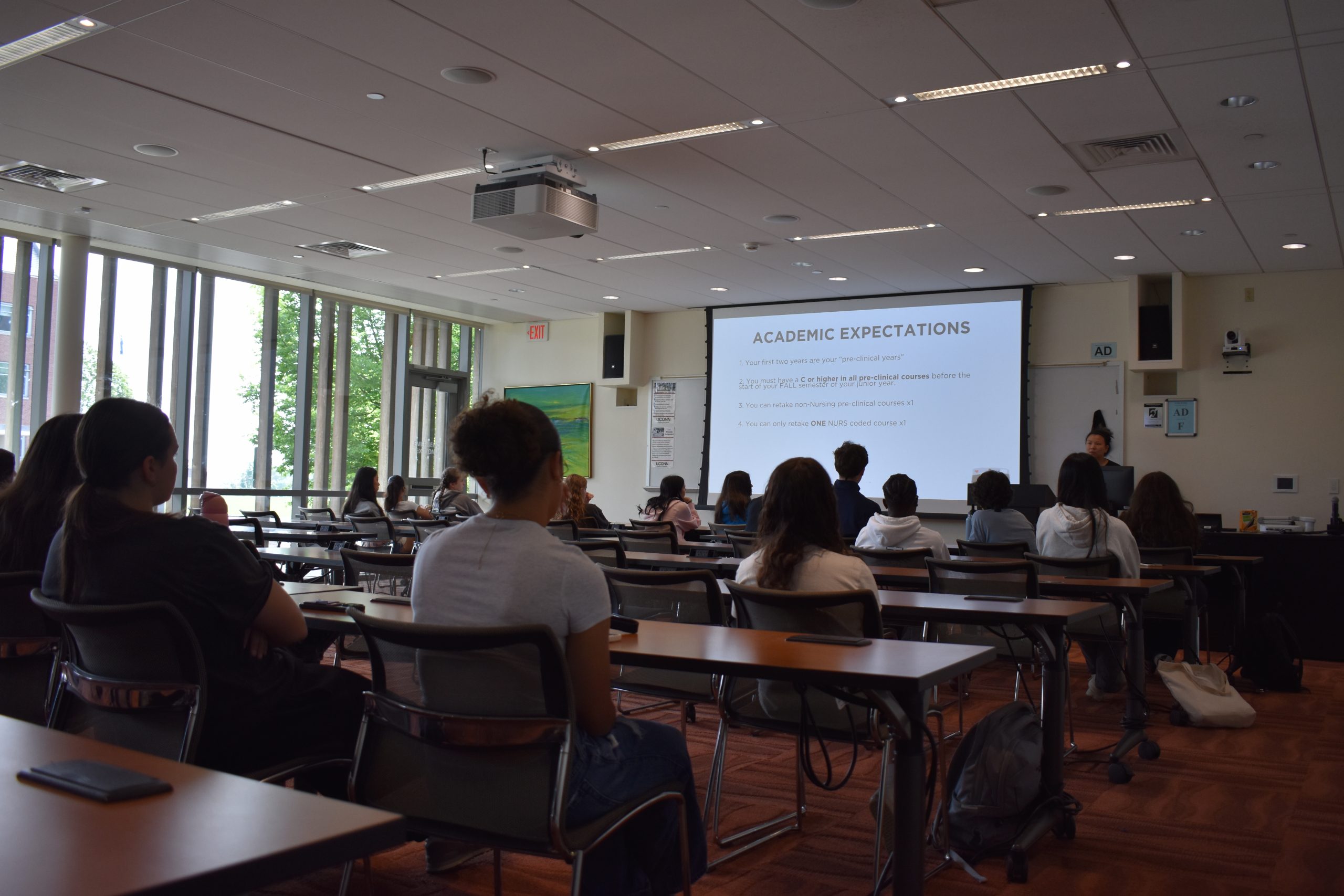
Jacqueline McGrath cares about the smallest human beings in a big way. McGrath, who has an international reputation for her expertise on developmental interventions with infants and their families, has a dual appointment as professor in UConn’s School of Nursing and as director of nursing research at Connecticut Children’s Medical Center. In both positions, she concentrates on the medical, emotional, and social issues surrounding the development of at-risk, pre-term babies.
McGrath, who came to Storrs last July from Virginia Commonwealth University as part of UConn’s Faculty 500 hiring program, earned her Ph.D. at the University of Pennsylvania.
She developed an interest in health care from personal experience. The oldest of six children, she spent her childhood in Canton, OH. Her youngest sister was born with spina bifida, a birth defect in which the backbone and spinal canal do not close before birth. Children born with this condition require considerable long-term medical intervention for an optimal outcome, and McGrath was touched as she watched her parents deal with the vagaries of an often cumbersome health care system that failed to consider the impact of chronic care on the family as a whole.
“I earned my undergraduate degree in nursing from the University of Akron, and I decided pretty quickly that neonatal nursing was where I belonged,” McGrath says. “I knew I wanted to have an impact on babies’ lives when they were so tiny and had so far to go.”
Subsequent graduate work, first at Kent State, where she earned her master’s in nursing, and then at the University of Pennsylvania, helped focus her attention on the unmet needs of premature babies admitted to neonatal intensive care units (NICU’s).
“Over the years,” she says, “we have increased the survival rate of premature infants to something like 95 per cent, and these are infants born after only 25 or 26 weeks gestation. The medical advances that save these babies have been incredible, but I have been concerned about their quality of life after they’re discharged. We’re only beginning to understand brain development of these infants and the importance of neuroprotective intervention during the time they spend in the NICU before going home at between 36 and 40 weeks of post-menstrual age.”
NICU PLAYtime
Because babies in a NICU generally have numerous medical procedures going on during their stay, and are often attached to a variety of monitors and other devices, the surroundings can be intimidating to new parents. With a busy staff paying necessary attention to specific medical procedures, the littlest patients may miss out on critical social interactions that foster attachment mechanisms that enable them to bond with their parents.
McGrath has developed a special program known as PLAY, to promote bonding between parents and their premature infants.
An acronym for Parent-delivered, Loving gentle massage, Age appropriate with Your cue-based assessment, PLAY teaches parents the best ways to touch and massage their premature infants. It encourages verbal and tactile interaction and begins a bonding process that generally occurs naturally with full-term babies but may not with preemies.
“Three months to an adult seems like no time at all,” says McGrath, “but three months spent in a NICU seems like an eternity for a baby and its parents. This is why we need to give parents help in interacting with their babies; that’s why I developed PLAY.”
In promoting parental involvement, PLAY also gives parents an opportunity to begin to understand the medical system. Given that some premature infants may have cognitive or physical issues that will require ongoing medical care for many years to come, parents learn to become their child’s advocate as they navigate the unfamiliar world of doctors and hospitals.
This structured approach to caregiving has proven beneficial to both the families involved and NICU doctors and nurses, who come to appreciate the active role parents can play in preparing premature infants to leave the hospital.
Dual appointment offers opportunity
The opportunity to teach and mentor students, while also expanding her research through UConn’s collaboration with Connecticut Children’s Medical Center, was irresistible to McGrath. She says adjusting to Connecticut’s winter weather was the only negative associated with her move from Virginia.
She is working with patients at both Connecticut Children’s Medical Center in Hartford, and at the UConn Health Center in Farmington, and hopes to expand her work to St. Francis Hospital. “I love the collaborative role I’m in,” she says.
“My work at CCMC also provides me the opportunity to foster the nursing staff in provision of evidence-based practice and nursing research,” she says. “The enthusiasm surrounding research at Connecticut Children’s is very exciting.”
McGrath equally enjoys her time teaching on campus. “I love the environment and the chance to interact with students,” she says. She is working with several nursing students in the Honors Program, helping them get started on their research programs, as well as several doctoral students in nursing, all with interests in mothers and babies.
“Working with undergraduates while also working with doctoral students provides me the best of both worlds, and I often find ways for them to work together,” she says.
“UConn is so much more student-centered than anywhere else I’ve taught,” McGrath adds. “The University really values its students, and that makes it a great fit for me; it’s who I am.”


